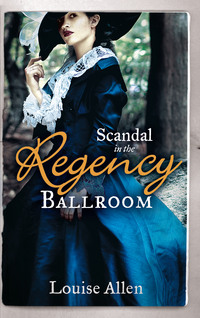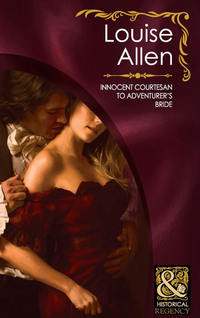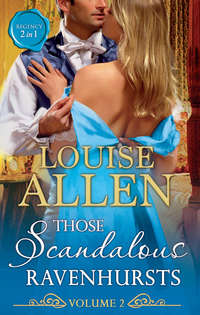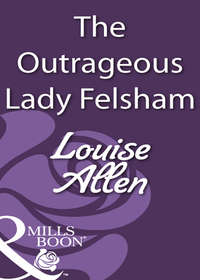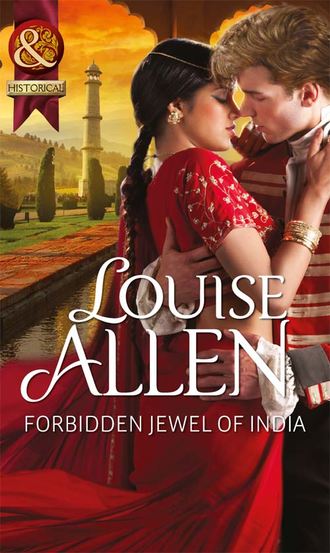
Полная версия
Forbidden Jewel of India
‘A lump,’ her uncle’s wife echoed, her lips curling into a wicked smile. ‘I must see this human log more closely.’ She gestured to the maid. ‘Find out at what hour my lord holds audience with the angrezi and in which diwan.’ Paravi turned to Anusha, suddenly every inch a rani. ‘You will join me in my gallery.’
Chapter Two
Nick changed, choosing his clothing with some care—the message from the raja had stipulated no uniform. When the escort came he walked, relaxed, between the four heavily armed members of the royal bodyguard. He had not expected to be received with anything but warmth, but it was good to have that confirmed. If Kirat Jaswan had decided his interests lay elsewhere than with the East India Company now that his sister was dead, then Nick’s mission would have become both dangerous and exceedingly difficult.
He supposed, if diplomacy failed, it was possible to remove an unwilling, intelligent and able-bodied princess from a heavily fortified palace in the middle of her uncle’s kingdom and get her back across hundreds of miles to Delhi with an angry raja’s troops at his heels, but he would prefer not to have to try. Or to start a small war in the process.
As it was, he felt good. He was clean, he was relaxed by the bath and the massage and the amusement of teasing the infuriating female he had to escort out of here.
Now, with her mother dead, and her father’s own wife gone, there was no one to hurt by George removing his daughter from the raja’s court and turning her into an English lady. And there were a number of very good political reasons for bringing her to Calcutta into the bargain.
Nick strode into the Diwan-i-Khas, the Hall of Private Audience. In his peripheral vision he was aware of marble pillars, the men in the robes and the ornate safa turbans of the elite on either side, of guards, their weapons drawn in ceremonial salute.
He kept his eyes on the slight figure in a gold embroidered chauga seated amidst piled cushions on the silver-embossed throne on the dais before him. As he reached two sword-lengths from the steps he made the first obeisance, aware of the flutter of silks, the drift of perfume, from behind the stone grillework of the gallery. The ladies of the court were there, watching and listening. Those in favour would have access to the raja, would give him their opinion of his guest. Was Miss Laurens there? He was certain that curiosity would have brought her.
‘Your Highness,’ he said in English. ‘Major Nicholas Herriard, at your service. I bring salutations from the Governor of the Calcutta Presidency with most grateful thanks for the honour of my reception.’
The white-clad munshi looked up from his writing desk at the raja’s feet and spoke in rapid Hindi. Raja Kirat Jaswan replied in the same language while Nick kept his face studiously blank.
‘His Highness, Lord of Kalatwah, Defender of the Sacred Places, Prince of the Emerald Lake, Favoured of the Lord Shiva …’ Nick stood frozen in place while the munshi reeled off the titles in English. ‘… commands you to approach.’
He stepped forwards and met the shrewd dark brown eyes that were regarding him from beneath the jewelled and plumed brocade of the turban. Overhead the ropes of the punkah fan creaked faintly.
The raja spoke. ‘It gives me pleasure to welcome the friend of my friend, Laurens,’ the secretary translated. ‘You left him in good health?’
‘I did, your Highness, although low in spirits from the death of his wife. And … another loss. He sends letters and gifts by my hand as does the Governor.’
The secretary translated. ‘I was sorry to hear of his wife and that his heart is still in grief, as mine is for the death of my sister last year. I know he will have shared my feelings. There is much to discuss.’ He waved a hand at the munshi. ‘We have no need of a translator, I think,’ the raja added in perfect English. ‘You will join me and we will relax, Major Herriard.’
It was a command, a great favour and exactly what Nick was hoping for. ‘My lord, you do me honour.’
The rani’s position in the women’s gallery around the audience hall was the very best position for observing and listening. Anusha had settled comfortably against the piled pillows next to Paravi as maids placed low tables covered in little dishes around them.
‘We should hear well,’ said the rani as they waited for the raja to arrive. The acoustics had been carefully designed in all the rooms: in some to baffle sound, in others to enable eavesdropping with ease. Here, in circumstances where the raja would consult with his favourite after a meeting, a conversation in a normal tone would reach easily to the pierced screens.
‘Savita tells me that your log of wood is as supple as a young sapling,’ Paravi added mischievously. ‘Such muscles …’
Anusha dropped the almonds she had just picked up. Rummaging in the cushions to retrieve them at least gave her the chance to compose her face and suppress her unruly imagination. ‘Truly? You amaze me.’
‘I wonder if he has read all the classical texts,’ Paravi continued. ‘He would be so strong, and most vigorous.’
Anusha took an incautious mouthful of nuts and coughed. Vigorous …
‘And he has very large … feet.’
There was no answer to that, especially as she was not sure what Paravi meant and suspected she was being teased. Anusha feigned interest in the arrival below of the male courtiers as they poured in to fill up the hall in a noisy, jostling, colourful mass. As the servants went from niche to niche, lighting the ghee lamps, the mirror fragments and gems in the walls and ceilings began to reflect back the light in scintillating patterns like constellations in the darker sky of shadows.
Faintly, there was the sound of the musicians tuning their instruments in the courtyard. It was beautiful and familiar and yet Anusha felt an ache of something she was beginning to recognise as loneliness.
How was it possible to feel lonely when she was never alone? To feel she was not part of this world when it had been her life for ten years, when she was surrounded by her mother’s family?
Her uncle walked through the crowd and took his place, gestured for the courtiers to be seated, then beckoned.
A tall figure in a sherwani of gold-and-green brocade over green pajama trousers walked through the seated men to the steps of the throne. For a moment Anusha could not place him until the pale gold of his hair, falling on his shoulders, caught the light. He bowed his head, his cupped right hand lifting to his heart in the graceful gesture of obeisance. As he straightened she saw the green fire of an emerald in his earlobe.
‘Look,’ she whispered to Paravi. ‘Just look at him!’ In the costume of the court the major should have looked more ordinary, but he did not. The brocade and the silks, the severe lines of the long coat and the glitter of gems, made the pale hair and the broad shoulders and the golden skin seem more exotic, more strange.
‘I am doing so!’
The raja motioned impatiently to the servants and they lifted the cushions from the foot of the dais and arranged them on the right side of the throne where the munshi’s desk had stood. ‘You will join me,’ Kirat Jaswan said.
‘My lord. You do me honour.’ The Hindi was accurate, perfectly accented. The big Englishman sank down and crossed his legs beneath him with the ease of an Indian. The raja dropped his hand to his shoulder and leaned over to speak.
‘I cannot hear,’ Paravi complained. ‘But here is the food, they cannot both whisper and eat.’
Indeed, as a succession of small dishes were presented to the raja, and he offered them in turn to the angrezi, the two men straightened up and most of what they said could be heard. But, to Anusha’s frustration, it was all the most innocuous conversation.
She ate absently, her eyes on the fair hair beneath, the glimpses of the Englishman’s profile as he turned his head to answer her uncle. His voice held the easy rhythms of a man who had not only been taught Hindi well, but who used it, day in, day out. What had he said his name was? Herriard? A strange name—she tried it out silently.
Then the food was finally cleared away, the scented water and cloths presented for the washing of hands and the great silver hookah was brought, with an extra mouthpiece for the guest. Both men appeared to relax as the music began.
‘They are discussing something of importance now,’ Paravi said. ‘See how they use the mouthpieces to shield their lips so that no one can read them.’
‘Why should they be so concerned? It is only the court around us.’
‘There are spies,’ the rani said after a swift glance. She lifted her hand with apparent casualness to shield her own mouth. ‘The Maharaja of Altaphur will have men in the court and agents here amongst the servants.’
‘Altaphur is an enemy?’ Surprised, Anusha twisted to face her. ‘But my uncle considered his request to wed me and sent him a fine horse when I refused. He said nothing then about any enmity.’
‘It is safer to pretend to be friends with the tiger who lives at the bottom of one’s garden than to let him see you know about his teeth. My lord would not have allowed the match even if you had agreed, but he made it seem the refusal was a woman’s whim, not a ruler’s snub.’
‘But why is he an enemy?’
‘This is a small but rich state—there is much to covet here. And, as you said earlier, we are in a position that interests the East India Company so they will make concessions to whoever rules, perhaps.’ Paravi spoke as though she was just working this out, but Anusha sensed a deeper knowledge behind the words. She caught an edge of fear in the other woman’s voice. Much had been hidden from her, she realised. Even her friend had been wearing a mask. No one had trusted her with the truth. Or perhaps they just thought her not important enough: the niece with the English blood in her veins.
‘There will be war?’ The state had been at peace for almost seventy years. But the court poets and musicians told the stories of past battles and of terrible defeats as well as glorious victories, of the men riding out, dressed in their ochre funerary robes, knowing they were going to their deaths, and the women filing down to the great burning pyres to commit jauhar, ritual suicide, rather than fall into the hands of the conqueror. Anusha shuddered. She would choose to ride out to die in battle, not go to the pyre.
‘No, of course not,’ the rani said with a confidence that Anusha did not believe. ‘The Company will protect us if we are their allies.’
‘Yes.’ It was best to agree. Anusha looked down at the golden head, bent listening. Then the Englishman looked up to meet the raja’s eyes and she caught the intensity in his face as he spoke with sudden passion, his hand slashing out in a gesture she could not interpret.
The court was moving back to clear space for a nautch. The dancers entered amidst the music of the bells on the silver chains around their ankles. Then they began to move, perfectly together, their wide, vivid skirts swinging out like exploding fireworks. But the two men did not spare them a glance and Anusha felt a cold finger of apprehension trail down her spine.
She went to her bedchamber unsettled and restless, her mind churning with her anxieties over the threat from across the border and the humiliation of the bathhouse.
‘Anusha.’ Paravi came in, her face serious.
‘What is it?’ Anusha dropped the book she was thumbing through and pushed back the loose hair that spilled over her shoulders.
‘My lord wishes to speak with you privately, without his councillors. Come to my chamber.’
Anusha realised that there were no maids present—neither her own, nor any with the rani. She stood up from the low couch, slid her feet into sandals and followed Paravi while her mind whirled with speculation.
Her uncle was unattended, his face starkly under-lit by the little lamps flickering on a low table by his side. Anusha made her reverence and waited, wondering why Paravi had pulled her veil over her face.
‘Major Herriard here has come from your father,’ Kirat Jaswan said without preamble. ‘He is concerned for you.’
Her father? Her pulse jolted with something close to fear. What could he want with her? Then the raja’s wording struck her. ‘Here?’
The big man stepped out of the shadows and bowed, unsmiling. He was still in Indian dress. The lamplight caught the gleam of the emeralds in his ear lobes, the silver embroidery and buttons of his coat. He looked both exotic and utterly comfortable, as at home in this guise as he seemed in the scarlet uniform.
‘I thought you were from the Company,’ Anusha challenged him in Hindi. ‘Not my father’s servant.’
The raja hissed a word of reproof, but the Englishman answered her in the same language, his green eyes meeting hers with a bold, assessing stare. No man should look at an unveiled woman not of his family like that. ‘I come from both. The Company is concerned about the intentions of the Maharaja of Altaphur towards this state. And so is your father.’
‘I understand why they should be concerned about a threat to Kalatwah. But why is my father thinking about me after all these years?’ Her uncle did not reprove her for not veiling herself. It was as though he was suddenly treating her as an Englishwoman, she thought with a shiver of alarm. The rani had slipped back into the shadows.
‘Your father has never ceased to concern himself with your welfare,’ the man Herriard said. He sounded irritated with her and when she shook her head in instinctive denial he frowned. ‘He saw the offer of marriage from Altaphur as a threat, a way of pressuring the Company through you.’
Her father knew about that? Kept such a close watch over her? It took her a moment for the meaning to force its way through resentment and the unsettling atmosphere of conspiracy. ‘I would have been a hostage?’
‘Exactly.’
‘How dreadful, that I might inconvenience the Company and my father in that way.’
‘Anusha!’ The raja slapped his palm down on the table.
‘Miss Laurens—’
‘Do not call me that.’ Her knees were shaking, but no one could see beneath the long skirts of her robe.
‘It is your name.’ Presumably the man spoke to his troops in this manner. She was not one of his troops. Anusha’s chin went up—that stopped it trembling as well.
‘Your father and I agree it would be better for you to return to his house,’ her uncle said. His quiet voice with its expectation of instant obedience cut across their hostility.
‘Go back to Calcutta? Go back to my father after he threw us out? He does not want me, only to stop me interfering with his political schemes. I hate him. And I cannot leave you and Kalatwah when there is danger, my lord. I will not run away—never!’ In her mind the crackle of flames and the clash of steel mingled with the sound of a big man’s belly-laugh and her mother’s stifled sobs.
‘Such drama,’ Herriard drawled, blowing the swirling images away like a draught of cold air. She itched to slap his well-defined jaw. ‘Ten years ago your father was in an impossible position and did the only honourable thing open to him to ensure the well-being of yourself and your mother.’
‘Honour! Pah!’
Herriard went very still. ‘You never, in my hearing, defame the honour of Sir George Laurens, do you understand?’
‘Or?’ Her neck muscles were so tense it was painful.
‘Or you will find it a matter for regret. If you will not leave because your father commands it, then do it for his Highness, your uncle. Or are your grudges so deep that you would hamper the defence of his state, the safety of the family, to indulge them?’
Grudges? He can calmly dismiss feelings about the betrayal of love, the rejection of a family, as a grudge? The marble floor seemed to quiver like sand beneath her feet. Anusha choked back the furious retort and looked at her uncle. ‘Do you want me to go, my lord?’
‘It is best,’ Kirat Jaswan said. He was everything to her: ruler, uncle, surrogate father. She owed him her total obedience. ‘You … complicate matters, Anusha. I would have you safe where you belong.’
So I do not belong here? No matter how she had been feeling these past months, this was too sudden, too abrupt. Her uncle had cast her out too, as her father had. Now she truly was adrift with nowhere to call home. To protest, would be futile, and beneath her. She was a Rajput princess by training, even if her blood was mixed. ‘I do not belong with my father. I never did, he made that clear as crystal. But because you, my lord and uncle, ask it, I shall go.’
And she would not weep, not in front of that arrogant angrezi who had got what he came for, it seemed: her surrender. She was of a princely house and she had her pride and she would do what her ruler commanded and not show fear. If he had commanded her to ride into battle to her death with his troops she would have done. Somehow that felt less frightening than this. ‘When must I go?’
The Englishman Herriard answered. It was as though her uncle had already washed his hands of her and had given her over to the other man. ‘You leave as soon as the vehicles and animals can be gathered and the journey provisioned. It is a long way and will take us many weeks.’
‘I remember,’ Anusha said. Weeks of blank discomfort and misery, clinging to her mother who was too proud to weep. Sent away because the big, loving, bear of a man who had hugged her and spoiled her, who had been the centre of her world and her mother’s universe, had cast them out. Because love, it seemed, was not for ever. Expediency conquered love. It was a lesson that had been well learned.
Then what Herriard had said penetrated. ‘Us? You will take me?’
‘Of course. I am your escort, Miss Laurens.’
‘I am so very sorry,’ she said, baring her teeth in a false smile. She would make every league a misery for him, if she could, the insensitive brute. ‘You obviously do not wish for this duty.’
‘I would walk the entire way in my bare feet if Sir George asked it,’ Major Herriard said. The cold green eyes looked back at her without liking or anger, as hard as the emeralds in his ears. ‘He is as a father to me and what he wants, Miss Laurens, I will ensure that he gets.’
A father? Just who was this man whose devotion went so far beyond a soldier’s obedience? ‘Fine words,’ Anusha said as she turned to leave. ‘I do hope you will not have cause to eat them.’
Chapter Three
‘If that man sends one more message about what I must and must not take I will scream.’ Anusha stood in the midst of harried, scurrying maids and searched for a word to describe Nicholas Herriard. With a phrase quivering on her tongue she caught Paravi’s amused gaze and compromised. ‘Budmash.’
‘Major Herriard is not a villain or a knave,’ the rani said, her tone of reproof in conflict with the curve of her lips. ‘And he will hear you—he is only on the other side of the jali. It is a long journey. He is right to make certain you will have everything you need, yet not too much.’
‘What is he doing there?’ Anusha demanded, raising her voice. If the wretched man was listening behind the pierced screen wall then he deserved to hear her opinion. The men who ruled her life had left her two choices: she could weep and give up or she could lose her temper. Her pride would not allow the first, so the major must bear the brunt of the other. ‘This is the women’s mahal.’
‘There is a eunuch with him and curtains have been hung around the room,’ Paravi hissed. ‘He is checking everything as it is packed.’
‘Hah! My uncle says I may have twenty elephants, forty camels, forty bullock carts, horses …’
‘And I say it is too much,’ said a deep voice from behind the far wall of pierced stone. Anusha jumped and stubbed her toe on a studded chest. ‘Anyone would think you are going to marry the Emperor, Miss Laurens. And besides, your father will want you to wear Western clothes and jewels in Calcutta.’
‘Mata told me about those clothes.’ Anusha marched across a stack of carpets until she was next to the jali. A large shadow on the silk hangings was all she could see of him through the screen. ‘Corsets! Stockings! Garters! She said they were instruments of torture.’
There was a snort from the other side. ‘They are not things a lady mentions in the presence of a man,’ Herriard said, laughter quivering in his voice.
‘Then go away. I do not require your presence here. I do not require your presence at all, anywhere, gloating because you are getting your way. If you listen from hiding like a spy, then you must endure whatever I say.’ There was a faint moan from the rani behind her. ‘Go away, Major Herriard. Twenty elephants are no slower than ten.’
‘Twenty elephants eat twice as much as ten,’ he retorted. ‘We leave the day after tomorrow. Anything that is not ready, or will not go on half the transport you have listed, will be left behind. And whilst I feel the greatest satisfaction in following your father’s wishes, I am not gloating.’
Anusha opened her mouth to retort, but the sound of footsteps leaving the other room silenced her. It was intolerable to be prevented from arguing because the man had the ill manners to remove himself.
‘Find me a dagger,’ she said, narrowing her eyes at the nearest maid, who was apparently rooted to the spot. ‘That at least I will take—I can imagine a nice broad target for it.’ And she would take all her jewels because when she was in Calcutta and Major Herriard was no longer her jailer she would need them to pay for her escape from her prison. From her father’s house.
Her dagger was in her hand and she would use it because the wretched angrezi was shouting at her and shaking her and drums were beating the alarm and there was danger all around.
‘Ah! Ra—’ Anusha’s shriek of rape was choked in her throat as a large hand clamped over her mouth. She had been asleep, dreaming, but now—
‘Quiet,’ Nicholas Herriard hissed in her ear. ‘We must leave, at once, in secret. When I take my hand away you will whisper or I’ll clip you on the jaw and carry you out. Do you understand?’
Furious, frightened—do not let him see that—Anusha nodded and he removed his hand. ‘Where are my maids?’ He jerked his head towards the corner and she opened her mouth to scream as she saw the two crumpled bodies lit by the flickering light of one ghee lamp. The hand came back, none too gently. The skin bore the calluses of a rider and chafed her lips. He tasted of leather.
‘Drugged,’ he murmured in her ear, pressing his palm tight over her mouth to foil her attempt to bite. ‘There are spies, I cannot risk it. Listen.’ He freed her mouth again.
Now she was awake she realised that the drums that had been echoing through her dream were real, their sound vibrating through the palace. She had never heard them like this, at night, so urgent. ‘An attack?’
‘The Maharaja of Altaphur has moved fast. There are war elephants and cavalry not four hours distant.’
‘He discovered you are here? That you had come for me?’ Anusha sat up, dragged the covers around her as Herriard sank back on his heels beside the low bed. He was wearing Indian dress again, but now it was plain riding gear with boots and a tight, dark turban to cover the betraying shimmer of pale hair.
‘He was already mobilising his troops—he must have been to get so close so fast. Then his spies told him that someone from the Company was here, perhaps that I intended to take you away, perhaps that I was negotiating. My guess is that he decided on a pre-emptive strike to seize the state before your uncle made an alliance with the Company.’


